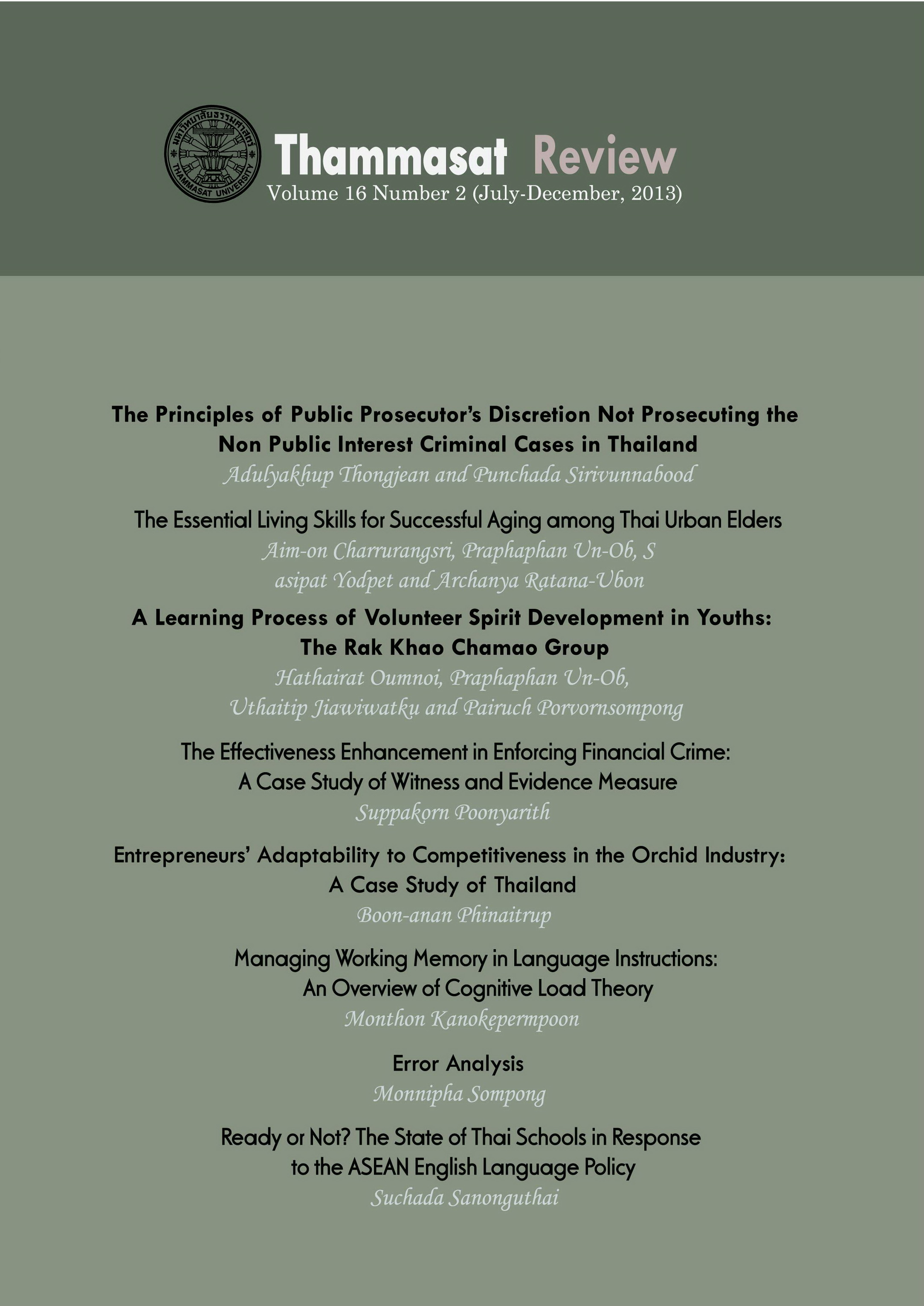The Principles of Public Prosecutor’s Discretion Not Prosecuting the Non Public Interest Criminal Cases in Thailand
Abstract
People understand that a public prosecutor only has the authority to conduct criminal prosecution to put someone in a jail. In fact, the public prosecutor can exercise discretion by not prosecuting the non public interest criminal cases. By doing so, the public prosecutor can maintain social order, deliver social justice and protect citizens’ rights. However, the public prosecutors do not pursue their power, such as not prosecution those non public interest criminal cases due to corruption allegations. In this study, the researcher studied the relationships among various important variables and the public prosecutor’s decision on not to prosecute or prosecute the non public interest criminal cases. The study reveals that the public prosecutor's personal background, including gender, age, education , work experiences, as well as the positive attitudes toward the discretion not to prosecute the non public interest criminal cases, does not influence the decision of not public prosecutor to prosecuting those kind of cases. The only factor that affects the public prosecutors’ decision not to prosecute the non public interest criminal cases is the due process of law and its relevant regulations.
Keywords: Public Prosecutor, Criminal Case, Criminal Prosecution
Downloads
How to Cite
Issue
Section
License
The opinions and ideas expressed in all submissions published in Thammasat Review are solely that of the author(s) and do not necessarily reflect that of the editors or the editorial board.
The copyright of all articles including all written content and illustrations belong to Thammasat Review. Any individuals or organisation wishing to publish, reproduce and distribute a particular manuscript must seek permission from the journal first.








